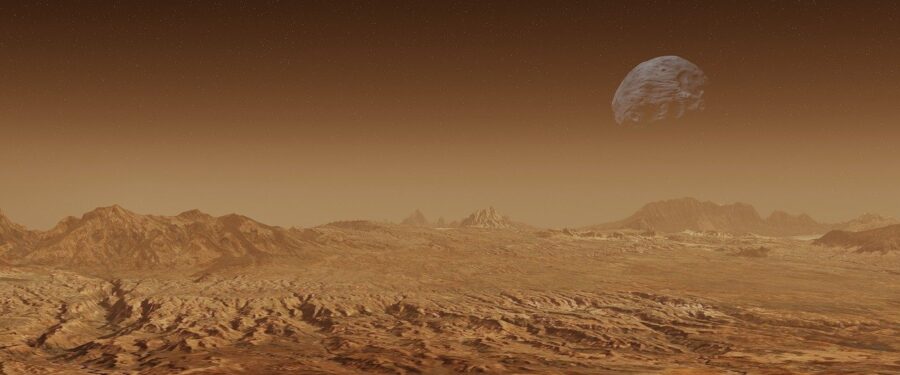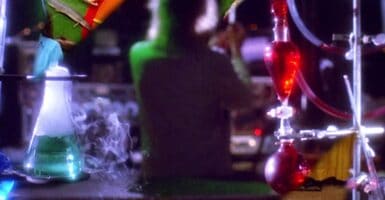Scientists Think Climate Change Killed The Martians?
A recent study suggests life has already called the planet Mars its home. The study shared by the University of Arizona on Wednesday claims that life on the planet was wiped out due to climate change. The study also claims there was life on Mars 4 billion years ago when it had a denser atmosphere than it does today.
Mars’ denser atmosphere allowed water on the planet to flow more freely. The availability of water meant increased growth of microbial life. In a university press release, study co-author Regis Ferriere said that they believe the planet was “a little cooler than Earth” some 4 billion years ago. The planet is now often described as an “ice cube covered in dust,” but Ferriere mentions that early Mars was “a rocky planet with a porous crust.”
Ferriere says that early Mars was “soaked in liquid water that likely formed lakes and rivers.” It provided enough water for microbial life to survive. After replicating various models and experiments, Ferriere and his team of researchers found that the atmosphere on Mars changed rapidly. No longer was microbial life capable of thriving on the planet.
Study co-author Boris Sauterey added that much of Mars’ atmosphere “disappeared.” Microbes completely ran out of an energy source, and they died out. Sauterey noted that because the temperature “would have dropped significantly,” the microbes would have to travel deeper into the planet’s crust. It’s pretty much unknown how much of the planet could still be inhabited.

NASA’s Perseverance rover has scrubbed Mars for signs of life since February 2021. In September 2022, the rover appeared to have picked up several rock samples, including high concentrations of organic matter. Perseverance scientist Ken Farley stated after the findings that it was the highest concentration of organic matter scientists had found on the planet.
However, the lack of water and denser atmosphere possibly means that most of the life on the planet has either died or traveled too deep into the planet’s crust. The question is, will scientists be able to find the microbes that somehow survived?
The planet seems to be on the path toward self-destruction. Not long ago, scientists predicted that one of Mars’s moons, Phobos, would crash into it someday. The prediction comes from the planet’s orbital path.
When the Perseverance first landed on Mars, it left quite a bit of debris on the planet. Many wondered if the debris was a sign that non-Earthlings had inhabited the planet before scientists began thoroughly studying it. Pictures showed a parachute and other equipment that helped the Perseverance safely land on the planet.
Scientists have also worried about deadly pathogens coming from Mars. This is because a spacecraft carries the planet’s rocks, dirt, and air. As you can see, there is much research and thought about the planet, and some of it is quite worrisome.
Despite the research and findings, some will still believe that non-human life inhabits Mars. The results may prove that the Red Planet was one full of resources capable of keeping species alive.












